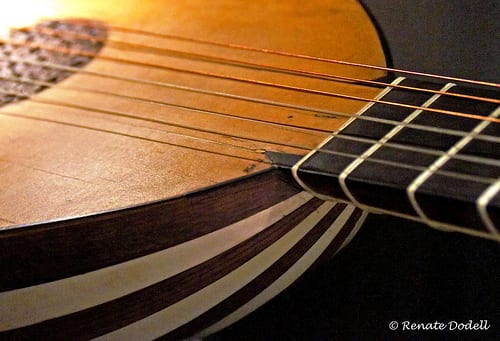 Mastering one instrument is hard enough – but playing around with a few, even just for fun, can be surprisingly beneficial to your overall knowledge and skillset. Check out Baltimore teacher Laudon S.’s story here…
Mastering one instrument is hard enough – but playing around with a few, even just for fun, can be surprisingly beneficial to your overall knowledge and skillset. Check out Baltimore teacher Laudon S.’s story here…
Having been a student of music for most of my life, I have become well-acquainted with the hardships of mastering an instrument. I don’t think these hardships would be foreign to any musician out there. The struggles of learning to read musical notation, the endless technical drills that are supposed to make the music easier, and the frustration of just not being able to attain your goals in the time that you have set for yourself all stand in the way of enjoying music-making.
Each accomplishment, while satisfying, leads to a new challenge, and a new horizon for you to push toward. Half of loving music is accepting that it is a work in progress….there is room for improvement, even among the highest echelons of musicians. If this is true and there are no limits to progress on an instrument, how can anyone be asked to play a second instrument, let alone several instruments? The answer lies in the fact that while we may want to be really great on our instrument, we need to be great musicians first, and that means experiencing music and learning from as many sources as we can.
A few years ago, I hit a wall in my guitar playing. I was practicing about six hours a day, and while I was certainly improving technically, my playing seemed flat to me and I just couldn’t figure out how to instill more emotion into the music. Frustrated, I decided to take the summer off from guitar. No more than a few days into my musical vacation, a friend of mine asked me if he could practice teaching me the viola. I thought, “Why not?” I certainly didn’t care if I was any good at it and I had plenty of free time.
The first few lessons didn’t do much to change my interest in the viola, but over the course of the summer I came to realize something that would change my playing entirely. Every instrument has strengths and weaknesses. For example, the guitar is great at chords, arpeggios, strumming, etc., but you can’t crescendo on a single note like a trumpet or a viola can (I mean, unless you are an electric guitarist with a volume pedal!). Learning to shape long notes on the viola taught me that the guitar can shape just as well, but it needs more than one note to do it. I realized what all those crazy runs and scales on the guitar are for. They are just written out crescendos and decrescendos!
The point is, learning other instruments helps us to fill the gaps in our musical knowledge and see our preferred instrument in new ways. Today I divide my time between the guitar, the lute (a relative of the guitar), and the theorbo (a giant lute), but I have also dabbled in piano, harpsichord, saxophone, and I hope to take voice lessons soon because being a better musician makes you better at any instrument.
 Laudon S. teaches music theory, music performance, lute, theorbo, and guitar lessons in Baltimore, MD. He joined the TakeLessons team in September 2012, with over 9 years of teaching experience, and a Master’s degree in Music from the Eastman School of Music. Learn more about Laudon, or search for a teacher near you?
Laudon S. teaches music theory, music performance, lute, theorbo, and guitar lessons in Baltimore, MD. He joined the TakeLessons team in September 2012, with over 9 years of teaching experience, and a Master’s degree in Music from the Eastman School of Music. Learn more about Laudon, or search for a teacher near you?
Photo by dorena-wm.
Suzy S.
